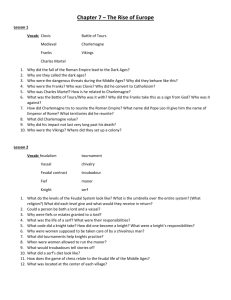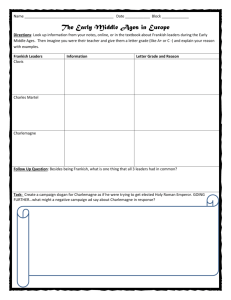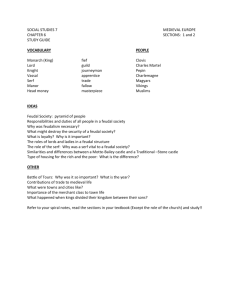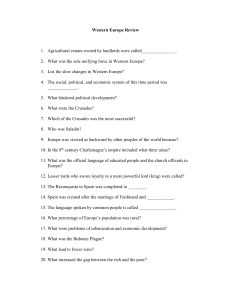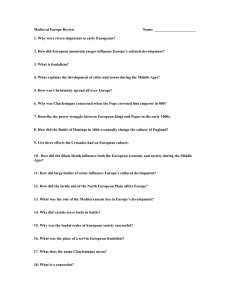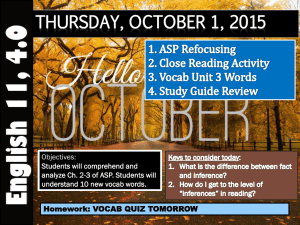Chapter 7 – The Rise of Europe
advertisement
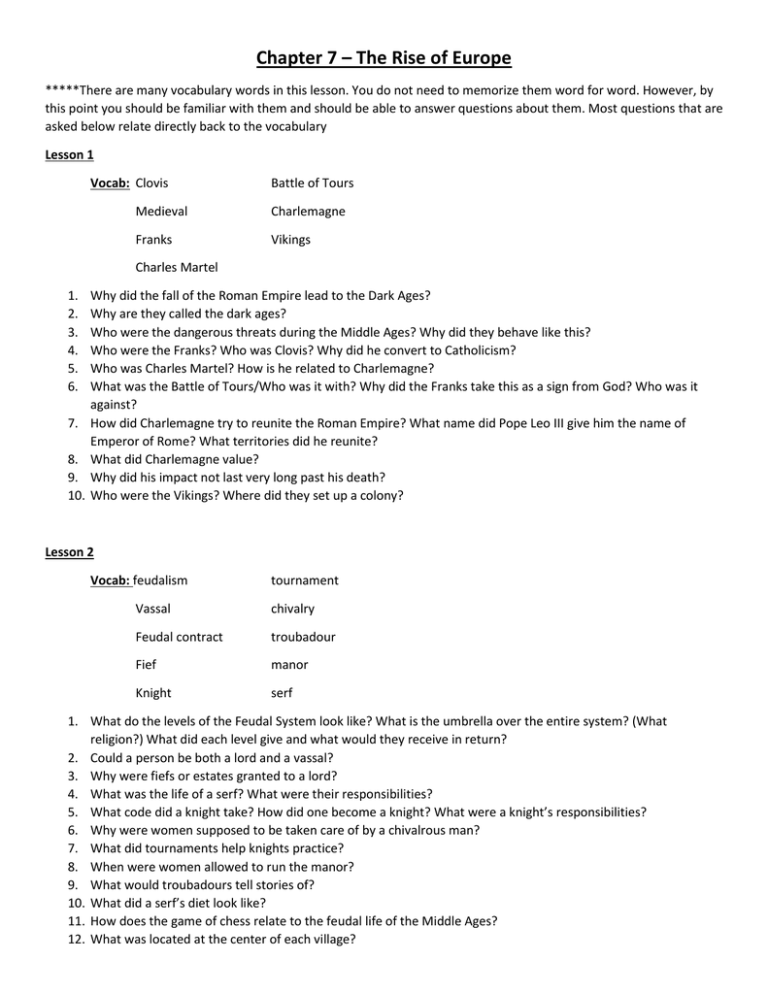
Chapter 7 – The Rise of Europe *****There are many vocabulary words in this lesson. You do not need to memorize them word for word. However, by this point you should be familiar with them and should be able to answer questions about them. Most questions that are asked below relate directly back to the vocabulary Lesson 1 Vocab: Clovis Battle of Tours Medieval Charlemagne Franks Vikings Charles Martel 1. 2. 3. 4. 5. 6. 7. 8. 9. 10. Why did the fall of the Roman Empire lead to the Dark Ages? Why are they called the dark ages? Who were the dangerous threats during the Middle Ages? Why did they behave like this? Who were the Franks? Who was Clovis? Why did he convert to Catholicism? Who was Charles Martel? How is he related to Charlemagne? What was the Battle of Tours/Who was it with? Why did the Franks take this as a sign from God? Who was it against? How did Charlemagne try to reunite the Roman Empire? What name did Pope Leo III give him the name of Emperor of Rome? What territories did he reunite? What did Charlemagne value? Why did his impact not last very long past his death? Who were the Vikings? Where did they set up a colony? Lesson 2 Vocab: feudalism tournament Vassal chivalry Feudal contract troubadour Fief manor Knight serf 1. What do the levels of the Feudal System look like? What is the umbrella over the entire system? (What religion?) What did each level give and what would they receive in return? 2. Could a person be both a lord and a vassal? 3. Why were fiefs or estates granted to a lord? 4. What was the life of a serf? What were their responsibilities? 5. What code did a knight take? How did one become a knight? What were a knight’s responsibilities? 6. Why were women supposed to be taken care of by a chivalrous man? 7. What did tournaments help knights practice? 8. When were women allowed to run the manor? 9. What would troubadours tell stories of? 10. What did a serf’s diet look like? 11. How does the game of chess relate to the feudal life of the Middle Ages? 12. What was located at the center of each village? Lesson 3 Vocab: sacrament Canon Law Benedictine Rule Excommunication Secular Friar Papal Supremacy Francis of Assisi 1. 2. 3. 4. 5. 6. Why did people make their sacraments? How could they be refused to punish people? Why was the church the center of the community? Why were the buildings of churches a sense of pride for villages? What were monasteries and convents? How was Benedictine Rule different from that of Franciscan reform? Explain how Papal Supremacy brought wealth to the higher levels of the church? What did people pay to the church? 7. If you went against canon law why could you be excommunicated? 8. How was the Jewish community viewed at this time? Why were they discriminated against? Lesson 4 Vocab: charter Journeyman Capital Crusades Partnership Reconquista Tenant Farmer Ferdinand and Isabella Middle Class Inquisition Guild Apprentice 1. What relatively small improvements were made that caused a great deal of change? a. b. c. 2. Why did the population increase during this time? 3. How were trade and travel revived? 4. What was the role of Constantinople to Western Europe? 5. What did traders bring back to Western Europe? 6. Why did partnerships form? 7. What did guilds do? Why did they tax? 8. Why would a person become an apprentice? When would they become a journeymen? How is this still used today? 9. What was the role of women during this time? 10. How does the experience during this time lead to the creation of the middle class? 11. Who was involved in the crusades? What were they fighting over? 12. What was the major benefit of the crusades?
